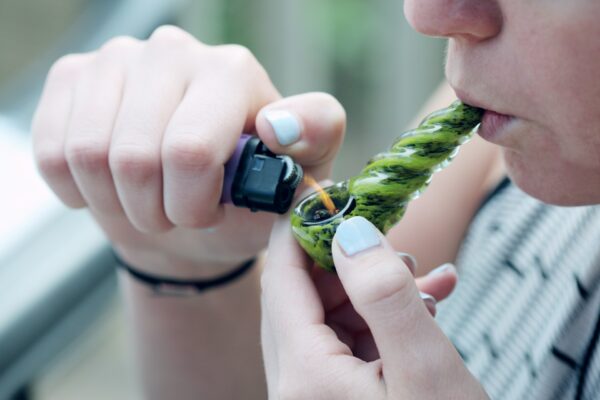Let's get started...
Losing a pet can feel like losing a family member or a best friend. For many teenagers, a pet is not just an animal but a beloved companion who's been part of daily routines, special moments, and, sometimes, the ups and downs of growing up. When a pet passes away, the gap they leave behind can be profound, but remembering them and celebrating their life can significantly help in dealing with the grief and keeping their memory alive.
Understanding Grief
Grief is a natural response to loss, and the loss of a pet is no different. It's important to understand and accept that feeling sad, confused, or even angry is perfectly normal. Each person experiences grief differently, and there is no right' way to feel after the loss of a pet. Teenagers, in particular, may find the loss of a pet challenging because it could be their first experience with death. The intensity of the relationship with a pet can make this a particularly acute loss.
Creating a Memory Box
One way to memorialise your pet is by creating a memory box. Gather items that remind you of your pet, such as a collar, favourite toys, photos, and even a small blanket or piece of bedding. You can decorate the box with drawings, stickers, or writing. This physical collection of memories can serve not only as a therapeutic activity to focus on after your loss but also as a personal and private way to revisit memories of your pet whenever you feel the need.
Commemorative Artwork
Art can be a powerful medium for expressing emotions and commemorating a lost pet. You might paint a picture, create a sculpture, draw cartoons, or write poetry or songs about your pet. Engaging in artistic activities can help process feelings of grief and turn them into something beautiful and enduring. Sharing this art can also help others understand your connection to your pet, providing a shared space for memories and condolences.
Memorial Garden
If you have the space, creating a memorial garden can be a wonderful, living tribute to a pet. Planting flowers or a tree in their favourite spot in the garden not only honours their memory but also provides a tranquil place for you to sit and remember the happy times. You can add a decorative stone, plaque, or even a personalised bench. As the plants grow, so too can your feelings of peace and remembrance.
Writing a Letter or Keeping a Journal
Writing can be a very therapeutic way to deal with the loss of a pet. You could write letters to your pet expressing all the things you wish you could say to them if they were still here. Alternatively, keeping a journal in the days and weeks after their passing can help you process your grief more fully. You can record memories, paste pictures, or just write about your feelings. Over time, this journal can become a cherished keepsake full of shared memories.
Online Memorials
In today's digital world, an online memorial can be a perfect way to remember your pet. Many websites allow you to create a virtual space dedicated to your pet. This might include photos, videos, and tributes from family and friends. Not only does this allow you to connect with others who understand your pain, but it also ensures that your pet's memory can be accessed anywhere, anytime.
Videos and Playlists
Creating a tribute video or a playlist of songs that remind you of your pet can be another creative way to remember them. Collect clips of your pet in their happiest moments, and pair these with music that holds significance for you or perhaps was just your pet's favourite tunes to nap to! This can be a healing way to revisit the joy your pet brought into your life through their quirks and antics.
Connect With Others
Often, talking about your pet with others who also knew and loved them can provide comfort. If this feels too difficult, connecting with online or community groups for those who have lost pets can help. Sharing stories and memories can reassure you that you're not alone in your grief.
Fundraising or Volunteering
To continue the legacy of your pet, consider fundraising for animal charities or volunteering at animal shelters. This not only honours the memory of your pet but also helps other animals in need, which can be incredibly rewarding and can help in the healing process.
Whether you choose a more personal and private form of remembrance like a journal or a more outwardly expressive memorial like artwork or a garden, the key is that it feels right for you and helps you reflect on the good times with your pet while managing your grief. Every action that helps keep your pet's memory alive can be a step toward healing.
How are you feeling?
It is really important that when we need help, we feel able to ask for it. This could be speaking to a parent, a close friend, a teacher or someone else you trust. Sometimes it can be really hard to share our feelings with other people but if we are feeling low or don't know where to turn, sharing with others is really important. Teachers will always take you seriously and listen to your problems in confidence if you approach them for help. Likewise, parents, siblings or friends will help you if you reach out to them.
If you feel like you can't speak to anyone you know, there are people and organisations that can help support you:
- Childline - Call them on 0800 1111 any time of the day or night, every day of the week
- NSPCC - Call them on 0808 800 5000 between 10am and 4pm Monday to Friday or email them on help@NSPCC.org.uk
- The Samaritans – Call them on 116 123 any time of the day or night, every day of the week
- SANE – Call 0300 304 7000 for support (4:30pm - 10:30pm every day)
- Mind – Call 0300 123 3393 (9:00am - 6:00pm Monday to Friday)
*Sometimes we will use real life examples in our articles to aid understanding. When we do, names and ages will be changed.













